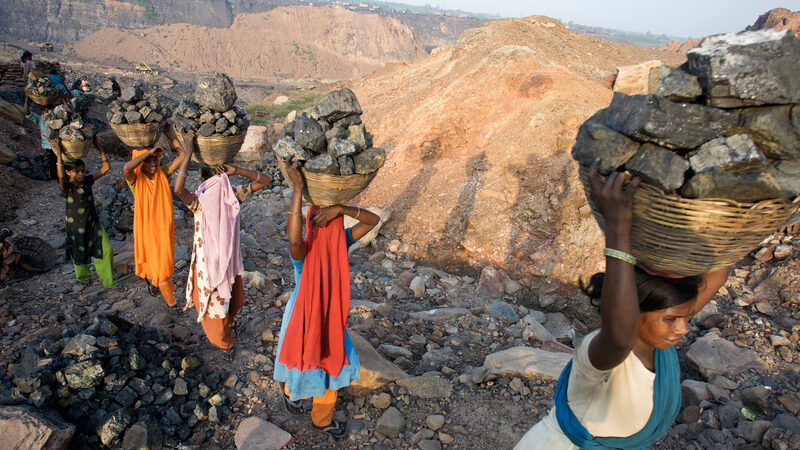A last-hour change to the Glasgow pact from a “phaseout” to a “phasedown” of coal power got a lot of attention, with India taking the flak for softening the language.
For the record, China also objected to “phaseout” and the US, EU and UK Cop26 presidency accepted “phasedown” rather than cut the coal reference altogether.
Why does it matter? A report by the National Foundation for India this week helps to explain. It estimates 13-20 million Indians depend economically on the coal sector – somewhere between the population of Zimbabwe and Thailand.
The reference to coal in the Cop26 outcome injects some urgency into the question of how they can survive and prosper in a clean energy future.
“Now there is an international consensus. There is a goal: phasedown, which will happen. India is a signatory to that. I’m sure in the coming years the pressure will be to quantify the phasing down. We cannot escape that and nor does India intend to dilute its commitment,” said government official Anil Jain at the report’s launch.
Good news. But, guess what, Jain says Coal India should not have to pay for it.
Prime minister Narendra Modi called for a cool trillion dollars to support the upgraded climate goals he announced in Glasgow – goals that have yet to be submitted to the UN in writing.
There is a lot riding on initiatives, like the $8.5 billion package for South Africa, to show international support can ease the transition.
This week’s news…
- Morocco accused of “greenwashing occupation” of Western Sahara
- Germany to quit coal by 2030 under coalition agreement, aiming for 1.5C path
- India ‘cannot escape’ coal phasedown, top coal ministry official says
- UN shipping body considers zero emissions goal, defers decision to 2023
- EU’s reformed agricultural policy fails its climate goals, say green groups
- Nigeria commits to annual carbon budgets to reach net zero under climate law
…and comment
- Why I am calling on EU lawmakers to put climate at the heart of agricultural policy – Robin Ehl, student and activist
- After Cop26, countries must turn climate promises into action on global shipping – David Kabua, president of the Marshall Islands
- The street and the boardroom are closer than they have ever been on climate – Maria Mendiluce, CEO of We Mean Business
